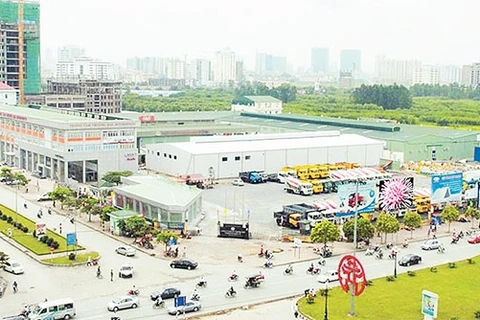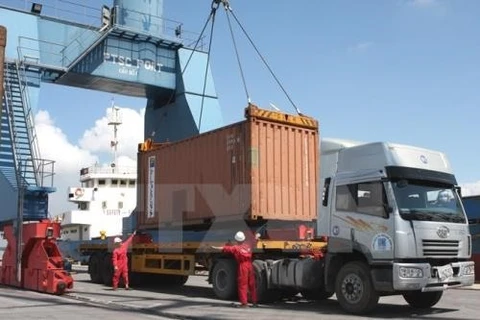HCM City (VNS/VNA) - Logistics fees in Vietnam account for nearly 21 percent of the country’s Gross Domestic Product (GDP), with transport making up 60 percent of the figure, twice as much as some developed economies.
The proportion of logistics fees to GDP in Japan is 11 percent, while it is 10 percent in the EU, according to the World Bank.
The high costs of road transport are due to unhealthy competition as transactions are conducted mainly through intermediaries, experts have said.
To reduce logistics fees, business associations in Ho Chi Minh City this week asked the city’s Department of Industry and Trade to maintain the current Value Added Tax (VAT) and reconsider the plan to charge a special consumption tax on soft drinks.
The cost of transporting 40-foot containers by land from Hanoi to HCM City is currently 40 million VND (1,750 USD), nearly 10 times higher than shipping by sea and 2.5 times higher than by rail.
For inland shipping on the north-south route, the freight rate from warehouse to warehouse is equal to 40-50 percent of land transport freight. But the transport time needed is three to five times longer.
The shipping fee on international routes remains high because imports and exports must be transshipped at foreign ports, which bear additional costs.
Such high costs directly affect the prices of products and the competitiveness of enterprises.
Furthermore, enterprises have to pay not only taxes and other costs regulated by law, but also other informal costs. They also have to undergo complicated administrative procedures.
The high logistics costs are burdening businesses, affecting their performance and weakening the competitiveness of the economy.
Cutting logistics and transport costs is urgently needed to boost competitiveness and economic development, experts said.
Administrative procedures related to logistics costs must be streamlined, said Nguyen Van Dung, Chairman of the Saigon Jewellery Association.
Investment in a national expressway network would also ensure more effective connections among industrial parks, key economic centres, border gates, seaports, railway stations and inland water ports, experts said.
The railway sector needs to build goods-transport stations, and upgrade loading and unloading facilities as well as warehouses that would provide common services for all transport enterprises.
In addition, informal costs borne by enterprises must be contained. — VNS/VNA
VNA
























